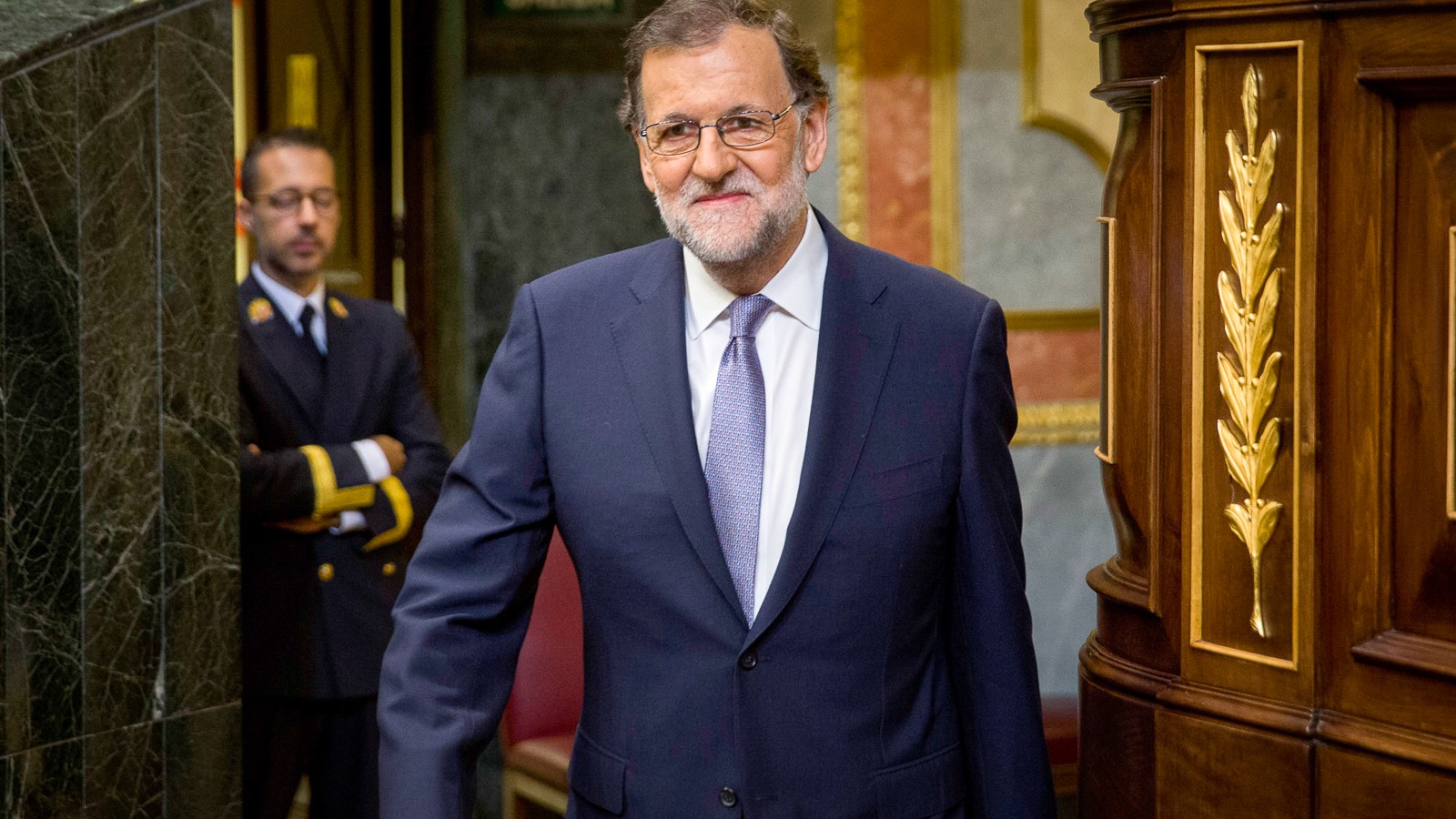
Mariano Rajoy, Spain’s acting prime minister and leader of the centre-right People’s Party (PP), failed in his first attempt to end the eight-month political impasse. His bid to form a new government was rejected by parliament on August 31st by 180 votes to 170.
A candidate for prime minister needs a majority of votes to take office in the first round of a confidence vote. The Socialist Workers’ Party (PSOE), the PP’s traditional political rival, the far-left Unidos-Podemos alliance and the Basque and Catalan nationalist parties voted against the PP leader. A prime ministerial candidate needs a simple majority in the second round of voting. Another vote on Mr Rajoy’s candidacy will be held on September 2nd. He is expected to lose it as well.
The PP leader is trying to form the first administration since the inconclusive general election in December 2015, which broke down Spain’s traditional two-party system. The re-run election in June produced yet another hung parliament. The PP came out on top again, winning 137 seats, and was the only party, which increased its share of the vote, compared with the December election. Mr Rajoy has secured a deal with the pro-market Ciudadanos party, which has 32 seats in parliament, and a regional party in the Canary Islands. That gives him 170 seats in the 350-seat parliament, well short of the 176 votes needed to secure a second-term as prime minister. Mr Rajoy is struggling to form a governing coalition, because of unresolved corruption allegations against him and his conservative party.
With 85 seats, the Socialists hold balance of power in parliament. Mr Rajoy needs the abstention of at least some Socialist deputies to reach a majority, which is unlikely. Pedro Sánchez, the Socialist leader, has refused to support a Rajoy-led government, despite calls from the party grandees, such as Felipe González, to let the PP leader govern. In December and June, the PSOE narrowly avoided being beaten into the third place by the far-left Podemos party. If Mr Sanchez makes any concession to Mr Rajoy, the PSOE could be displaced by Podemos as the main political force of the Spanish left. That prospect works against a deal. The PSOE, however, could take the responsibility for the country and abstain to allow the Conservatives to govern provided that a PP minority government is led by someone else than Mr Rajoy.
Mr Sánchez could try to form an alternative administration, but the PSOE’s chances of putting together a parliamentary majority look slim. A deal between the Socialists and Unidos-Podemos, which won 71 seats in the June election, will give a leftist coalition only 156 seats. To govern, it will need the backing of smaller nationalist parties. The problem is that a Socialist-led administration will have to rely on parties, which support a referendum on Catalan independence (the PSOE stands ready to defend Spanish territorial unity). Moreover, a coalition agreement with the far-left Unidos-Podemos alliance will almost certainly alienate left-of-centre voters and the business community. A three-way deal between the Socialists, Podemos and Ciudadanos will give 188 seats, but it was tried in vain in March.
If Mr Rajoy or another candidate fails to secure a parliamentary majority by the end of October, King Felipe will have to dissolve parliament and call another general election. Under a timetable set out by the electoral law, the most likely date for the next election would fall on December 25th. The unprecedented third general election in a year would likely benefit Mr Rajoy’s PP as conservative voters are more likely to turn out on election day.
The Spanish economy has overcome the political impasse so far. GDP grew 0.8 per cent in the second quarter from the previous three months led by a pickup in investment and exports. The eurozone’s fourth-largest economy expanded 3.2 per cent from a year earlier. Madrid has agreed with Brussels to reduce a budget deficit below 3 per cent of GDP by 2018.
photo: La Moncloa – Gobierno de España / CC BY-NC-ND 2.0